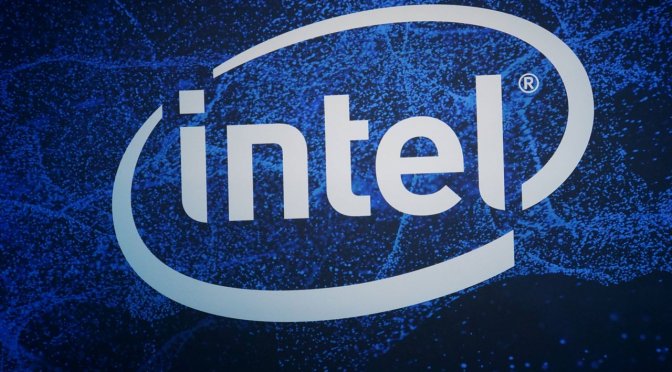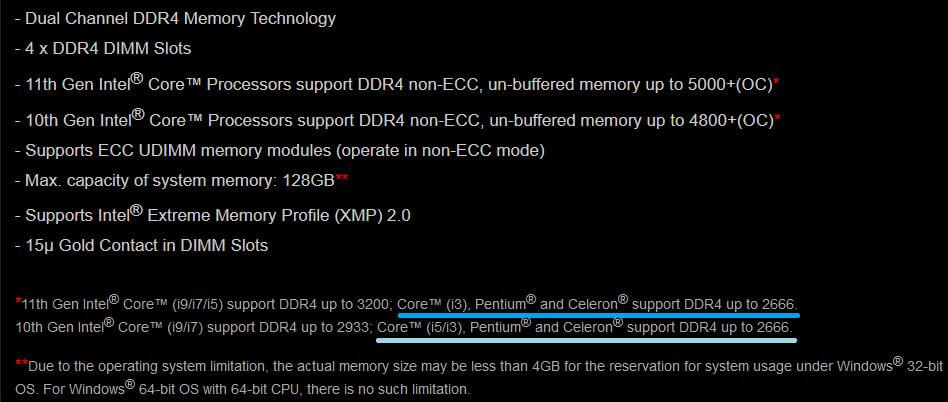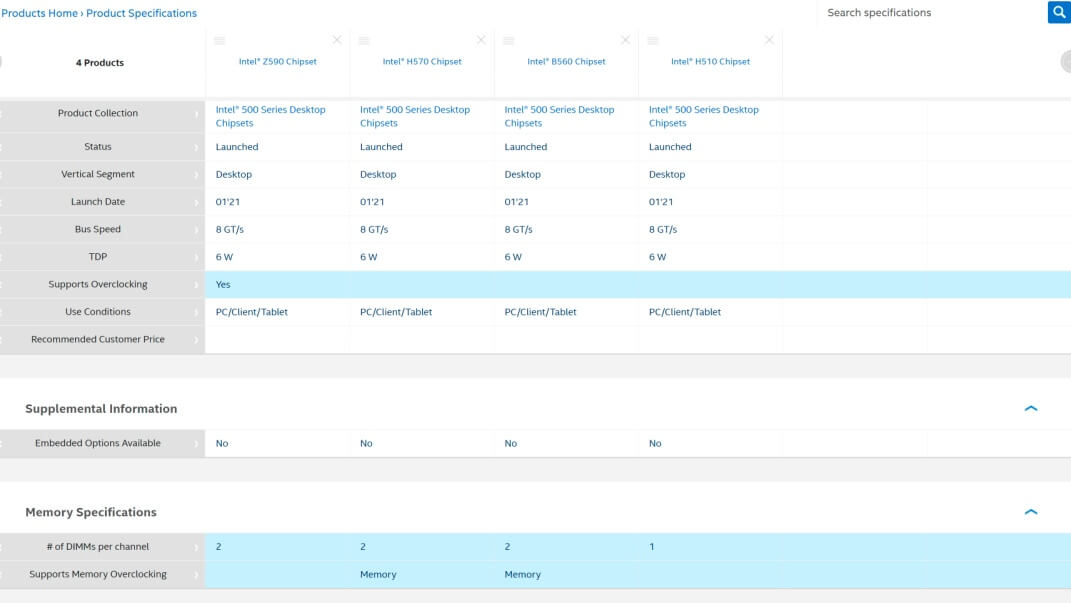At the CES 2021 event showcase, Intel announced its 11th gen Rocket Lake-S CPU series during the press briefing. Official announcement slides were leaked as well, which showed almost 14% IPC Boost with 11th gen CPU lineup.
Rocket Lake-S will be housed on the new 500-series motherboards. Although the Rocket Lake-S lineup will be the last to feature the LGA1200 socket/Z490 chipset, Intel is planning a full range of chipsets, including workstation W580, high-end gaming Z590, H570, and budget-oriented B560 and H510 series.
Intel has also broadened the DMI interface, which connects the processor to the platform controller hub (PCH), from x4 to x8. Rocket Lake 11th Gen core series CPUs are expected to hit retail shelves by the end of March 2021.
The RKL lineup will share the same LGA 1200 socket and motherboard compatibility as the current 10th Gen Comet Lake processors, thus providing an upgrade path even for those rocking the current flagship Core i9-10900K Comet lake CPU. Intel’s partners are all set to unveil their 500-series motherboards which would include the Z590, H570, B560, & H510 families.
The 500-series chipset motherboards will be designed to fully support Intel’s 11th gen Rocket Lake CPU family.
According to one recent finding spotted on ASRock motherboard’s support page, Intel plans to enable memory overclocking ability on the non-Z chipset Motherboards as well. For the current 11th gen Rocket Lake- S CPU lineup, motherboards that support the H570 or B560 chipset will allow users to use memory that’s faster than the official supported specification.
AMD has already enabled memory overclocking on some of its budget A-or B-series chipsets, unlike Intel who have reserved this memory OC feature for its high-end flagship Z-series boards only. Before the release of these new 500-series chipset motherboards, Intel users only had access to memory overclocking on the flagship Z-series chipset, which created further segmentation.
But this might change now it seems, if ASRock’s support page is cited as an example/proof.
As recently spotted by @momomo_us, it looks that ASRock’s Z590 Taichi product page sort of confirms that Intel may employ a similar tactic with the Rocket Lake-S CPU lineup. The support page description for the memory reads, “11th Gen Intel Core™ (i9/i7/i5) support DDR4 up to 3200; Core (i3), Pentium and Celeron support DDR4 up to 2666.”
For comparison, in the previous 10th generation Comet Lake-S CPU lineup, the Core i9 and Core i7 SKUs had native support for DDR4-2933, while the Core i5 and below SKUs were limited to DDR4-2666 frequency. So basically the H470 and B460 chipsets were restricted to DDR4-2933 memory support only.
In case you didn’t know, Intel’s 11th gen desktop processor lineup will feature both Rocket Lake-S and Comet Lake-S “refresh” CPUs. The Intel 11th generation lineup includes 13 Rocket Lake/RKL and a total of 13 Comet Lake refresh desktop CPUs. As per the source Rocket Lake lineup features the core i9, i7 & i5 variants, while the Comet Lake refresh desktop CPUs will come in Core i3, Pentium & Celeron variants.
Now, if we look back on ASRock’s Z590 Taichi product page it’s clear that the core i9 to Core i5 models are Rocket Lake-S chips supporting DDR4-3200, and the rest of the SKUs are the Comet Lake refresh chips that will have same support for DDR4-2666 speed.
This might not seem like a big deal to some of you, but it’s good to know that the chipmaker is opening the door for these budget chipsets as well, thus providing gamers with an option to overclock the memory, or use a higher clocked system RAM in the first place. But of course, this is just one AIB for now, ASRock, but other vendors may also follow suit.
There is one concern though regarding supporting memory overclocking on the B/H-series boards, is that since the memory controller is in the CPU, the chipset plays no real role in memory support capability besides acting as a fully arbitrary (un)lock.
So basically now the H570 and B560 chipsets will support memory overclocking, which means memory speeds above DDR4-3200, but you still need to pair the motherboard with a compatible Core i5 and above processor SKU. Core i3 and below processor SKUs will stick to DDR4-2666 speed.
However, please keep in mind that for any frequencies above 2666 MHz, you’ll have to use at least a Core i5 processor. After all, the Core i3 and Celeron SKUs are not going to support speeds higher than 2666 MHz.
Previously, pairing a high-end core i9 chip on an H-or B-series chipset meant you were restricted and locked out from using a faster memory. Hopefully, now things might change with the new Rocket Lake processor series lineup. But the H570 and B560 chipsets still lack the support for CPU overclocking.
Rocket Lake will deliver desktop users up to eight cores and sixteen threads on the high-end, which means two cores and four threads less than the current Comet Lake processor lineup. But the reduction in core count could also mean that Intel plans to rely on increased single-threaded performance, thus boosting overall system performance through single-threaded gains.
Single-threaded performance will help Intel to compete more in the CPU market segment, even if AMD can deliver higher core count SKUs. Not all applications or tasks are highly multi-threaded in nature, which makes the single-threaded performance all the more important.
Intel claims that Rocket Lake’s IPC and frequency improvements offset the removal of the two cores, implying the chip will offer the same performance as the previous gen ten-core 10900K CPU.
Rocket Lake 11th gen core series CPUs are expected to hit retail shelves by the end of March 2021.
Rocket Lake-S desktop platform is the last CPU architecture to be based on an advanced and refined 14nm process node. Intel has confirmed that the 11th gen Core series features 20 PCIe 4.0 lanes off the CPU, which are 4 lanes more than the current 10th gen Comet Lake-S lineup.
The new Rocket Lake-S silicon or SoC is going to be known as ‘Cypress Cove’. Rocket Lake-S will be the first CPU lineup to offer PCIe Gen 4.0 support, along with enhanced overclocking and double-digit percentage IPC benefits over the current Comet Lake-S lineup.
Rocket Lake uses a 14nm back-port of the 10nm Sunny Cove cores found in the Ice Lake processors.
“Backporting” is a technique that allows Intel to take a new design built on a smaller process node, in this case 10nm, and put it on an older, larger node like 14nm. Also, the RKL CPU lineup will max out at 8 cores/16 threads. According to Intel, Rocket Lake-S will have a PL1 state value of 125 Watts and a PL2 of 250 Watts.
RKL lineup will also feature enhanced Intel UHD graphics that will use the company’s new Xe GPU architecture, which is projected to provide a 50 percent performance gain over Intel’s Gen9 graphics used on ninth-generation Intel Core processors.
Stay tuned for more tech news!
Hello, my name is NICK Richardson. I’m an avid PC and tech fan since the good old days of RIVA TNT2, and 3DFX interactive “Voodoo” gaming cards. I love playing mostly First-person shooters, and I’m a die-hard fan of this FPS genre, since the good ‘old Doom and Wolfenstein days.
MUSIC has always been my passion/roots, but I started gaming “casually” when I was young on Nvidia’s GeForce3 series of cards. I’m by no means an avid or a hardcore gamer though, but I just love stuff related to the PC, Games, and technology in general. I’ve been involved with many indie Metal bands worldwide, and have helped them promote their albums in record labels. I’m a very broad-minded down to earth guy. MUSIC is my inner expression, and soul.
Contact: Email



